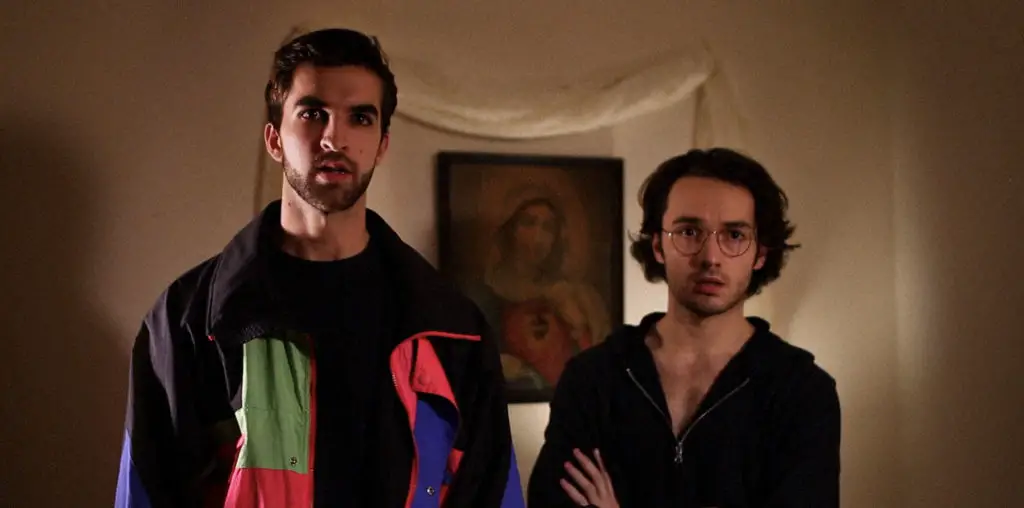
Experimental cinema – not unlike experiments conducted in any mechanical process – generates hit-or-miss results. In this case, the result goes far beyond missing the mark.
Wonderland consists of a pair of hour-long films shot in Zurich and Strasbourg by Nicolas Humbert and Martin Otter. Both films have no plot – they mostly offer a meandering collection of street scenes that are mostly framed in dreary monochrome. A great deal of the camera time is spent gazing at walls and traffic intersections, for no apparent reason, although a gorilla in a zoo somehow gets a close-up. Even worse, the films use a split-screen format (obviously nobody told Humbert and Otter that split-screen went out of fashion with Woodstock).
Adding to the confusion is a pair of soundtracks saddled on each film: one created by the filmmakers, one created by the Parisian band Das Kapital. The result is an audio-visual mess. The parallel images rarely complement each other in terms of contents or quality, and the choice of soundtracks (which are overstuffed with annoying avant-garde jazz and a mix of annoying real-life noises) seems to have been hijacked from another movie.
In the DVD’s booklet, the filmmakers insist that Wonderland “belongs to the same artistic tradition as Berlin: Symphony of a Great City and Man with a Movie Camera.” Except for the fact that it was shot with a camera, the dismally pretentious Wonderland is worlds removed from those pioneering 1920s production.
